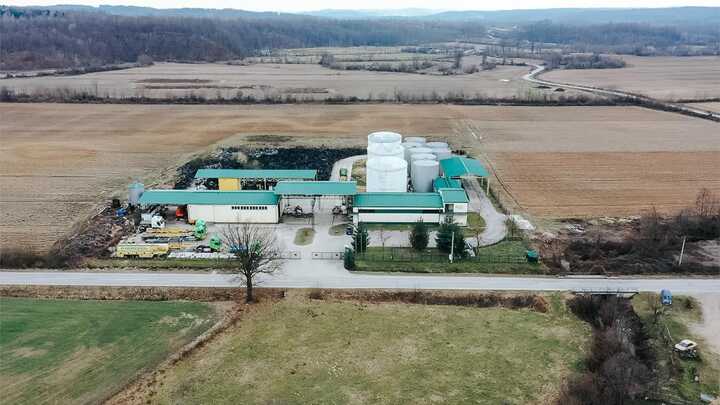The European Public Prosecution Office (EPPO) appealed the ruling. The suspects will remain under electronic surveillance until the appellate court reaches a decision in two weeks.
Paula Telo Alves, an EPPO press officer, told OCCRP that she could not provide more details about the case as “this is an ongoing investigation, and there is nothing else that we can share at this moment, in order not to endanger the ongoing procedures and their outcome.”
Belgian police arrested the men in May following investigations of illegal imports of biodiesel into the European Union, according to the EPPO.
“The two suspects are understood to be the ringleaders of a criminal organisation that imported biodiesel of U.S. origin into the EU, while fraudulently declaring its origin as Morocco,” the EPPO said in a June 28 statement.
OCCRP published an investigation last year showing how the alleged fraudsters exploited EU climate policy by importing cheap traditional biofuel, while claiming the product was made from used cooking oil (UCO).
The EU subsidizes the purchase of biodiesel made from UCO, which is more expensive to manufacture than fuel derived from cheaper sources like soybeans and palm oil, crops that are linked to deforestation.
The union has mandated a target of 14% renewable fuels by 2030. UCO-based biodiesels are particularly attractive because, since they are converted waste, some member states count them double towards the target.
In its June statement, the EPPO noted that two lawyers for the Bosnian-Americans were also arrested after they “allegedly attempted to move and hide potentially incriminating evidence for their clients.”
OCCRP reported last year that the Bosnian-Americans owned a firm in Bosnia and Herzegovina that falsely claimed to be making UCO-based biofuel. Instead, it mislabeled cheap soy biofuel and sold it to at least 17 companies in nine countries.
An unpublished report by the EU’s anti-fraud office alleged that the company’s owners falsified paperwork to avoid paying millions of euros in customs duties.
